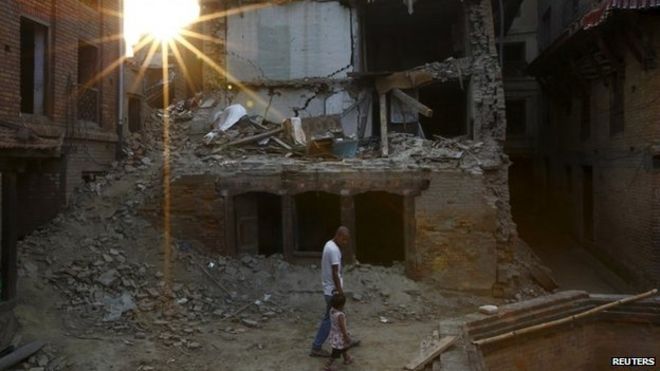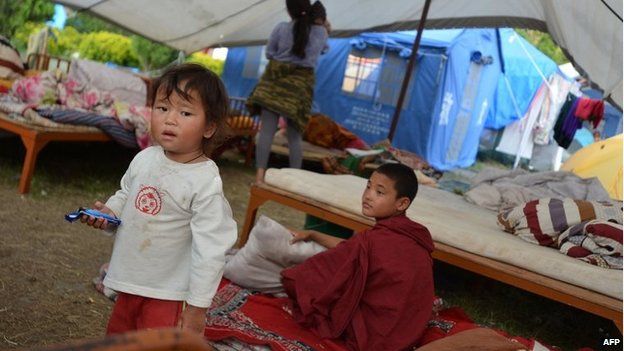
Nepal’s government is asking international donors to give money directly to them for relief efforts
One month after the devastating 7.8 magnitude earthquake that hit Nepal, the country’s finance minister has called for more direct aid funding.
Dr Ram Sharan Mahat told the BBC less than 10% of the money spent on relief by his government came from overseas.
His comments come as Nepal’s government faces growing criticism over its handling of the crisis.
Dr Mahat said he hoped future international donations would be managed directly by his government.
The earthquake that hit on 25 April, and a second major tremor on 12 May, killed more than 8,600 people and brought down buildings in Kathmandu and the country’s central districts.
Shelter materials and food aid have been slow to reach some areas, and many Nepalese have complained that the government is not doing enough to help those affected.
As aftershocks continue to be felt, thousands of people are still living in make-shift tents and there are fears these will not survive the summer monsoon, which is due to start next month.
There are also fears the rainy season will bring further landslides and the threat of disease.

Many are still living in makeshift shelters as the heavy monsoon rains approach
Dr Mahat said he recognised there were complaints over the way the government had handled the aid effort.
“People are still under tents in the open parade ground and they cannot go back home,” he said.
“Some people have not received the relief materials they expected. You cannot satisfy everybody.”
But, he said, his government’s ability to act had been hampered by international aid agencies who are working independently of government structures.
He said much of the hundreds of millions of dollars being raised around the world for quake victims was being spent directly by organisations such as the United Nations and aid agencies.
The United Nations has appealed for $423m (£273m) to be able to provide up to two million survivors with basic relief such as tents or tarpaulin sheets, dry food rations, safe drinking water and toilets for the next three months.
The organisation’s Financial Tracking System shows that $92.4m has been raised so far – only 22% of the required funds.
“The international community provided relief materials, the services and some goods but they didn’t give money – they have their own institutions and agencies to deliver the services,” said Dr Mahat.
BBC
 Q FM Africa's Modern Radio
Q FM Africa's Modern Radio